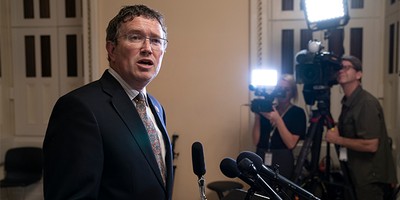A new survey out from the Association of Financial Professionals finds that business experts don't see a promising landscape in 2011.
The 2011 AFP Business Outlook Survey took a sample of finance professionals' opinions and found that, even though a growth bounce-back is expected, the jobs market may not see substantial recovery until 2012 or afterwards. Some of the biggest concerns are tax uncertainty, the size of the federal deficit and volatility of the US dollar.
One particular area of focus for the AFP survey was on the impact of corporate taxes on repatriated earnings. Corporations with a base in the United States do business in countries all over the world and follow the tax policies of those countries. Unlike many other countries, however, the United States subjects money imported back into the country to an effective 35% tax rate.
The result is that companies will refuse to bring money made overseas back to the United States to reinvest. And that can make a huge difference.
In 2005, the U.S. temporarily lowered, for one year, its repatriation tax from 35% to 5.25%. Repatriation soared, going from under $100 billion to over $300 billion. According to a study by Allen Sinai at Decision Economics, that money was used for capital investment, hiring and training of employees, research and development and debt relief.
Brian Kalish, Director of Finance Practice at AFP, says that the reason the tax exists is that the US government thinks that they'll eventually get their 35%. But that's not true in today's globalized world.
"There's a fallacy," Kalish says, "they don't ever have to bring the money back. And if they don't bring the money back, your tax revenue is zero." Rather than repatriate their foreign earnings, corporations can just continue to invest and develop overseas.
It doesn't have to be this way. As John Chambers and Safra Catz recently noted in the Wall Street Journal:
The U.S. government's treatment of repatriated foreign earnings stands in marked contrast to the tax practices of almost every major developed economy, including Germany, Japan, the United Kingdom, France, Spain, Italy, Russia, Australia and Canada, to name a few. Companies headquartered in any of these countries can repatriate foreign earnings to their home countries at a tax rate of 0%-2%. That's because those countries realize that choking off foreign capital from their economies is decidedly against their national interests.
Recommended
Sinai's study points to an additional $565 billion that would be repatriated and reinvested in the United States if a similar policy to the 2005 holiday were to be enacted. While job growth wouldn't be immediately seen, the long-term implications of a lower repatriation tax could be enormous.
"It is not, in all honesty, something that's going to happen tomorrow," Kalish forecasts. "I think it'll probably be part of a larger change in the tax code. Though, to the extent that the Adminstration and Congress does go down that path, we think that it will be an element in reform."

























Join the conversation as a VIP Member